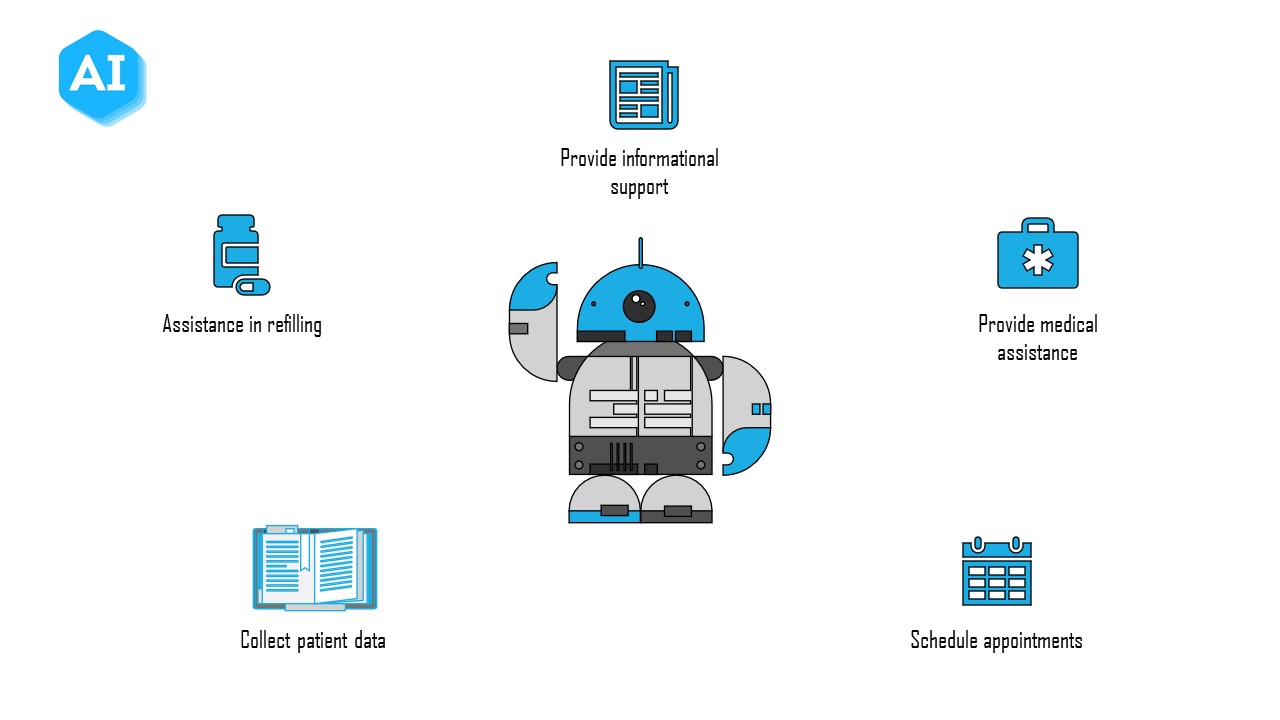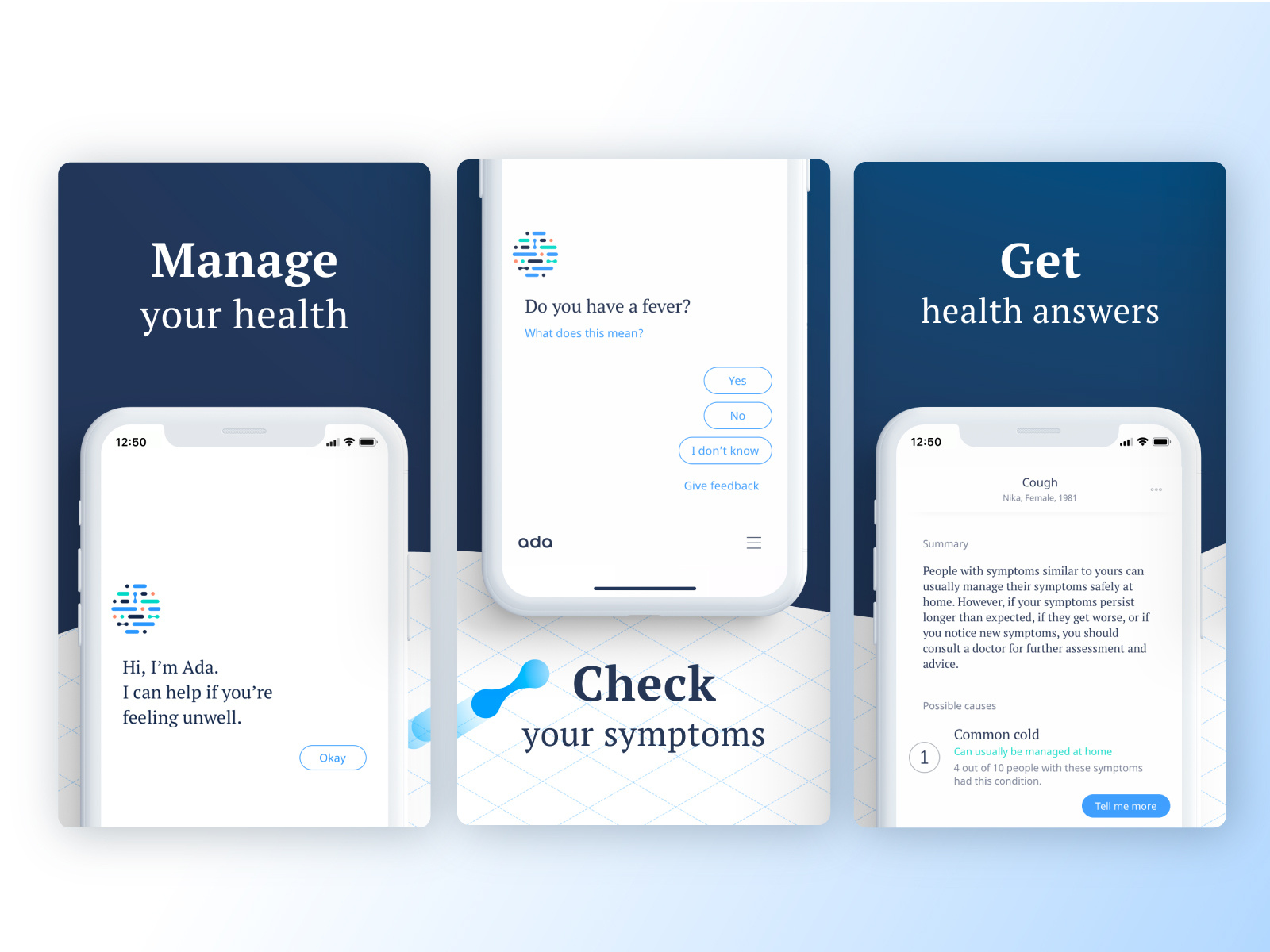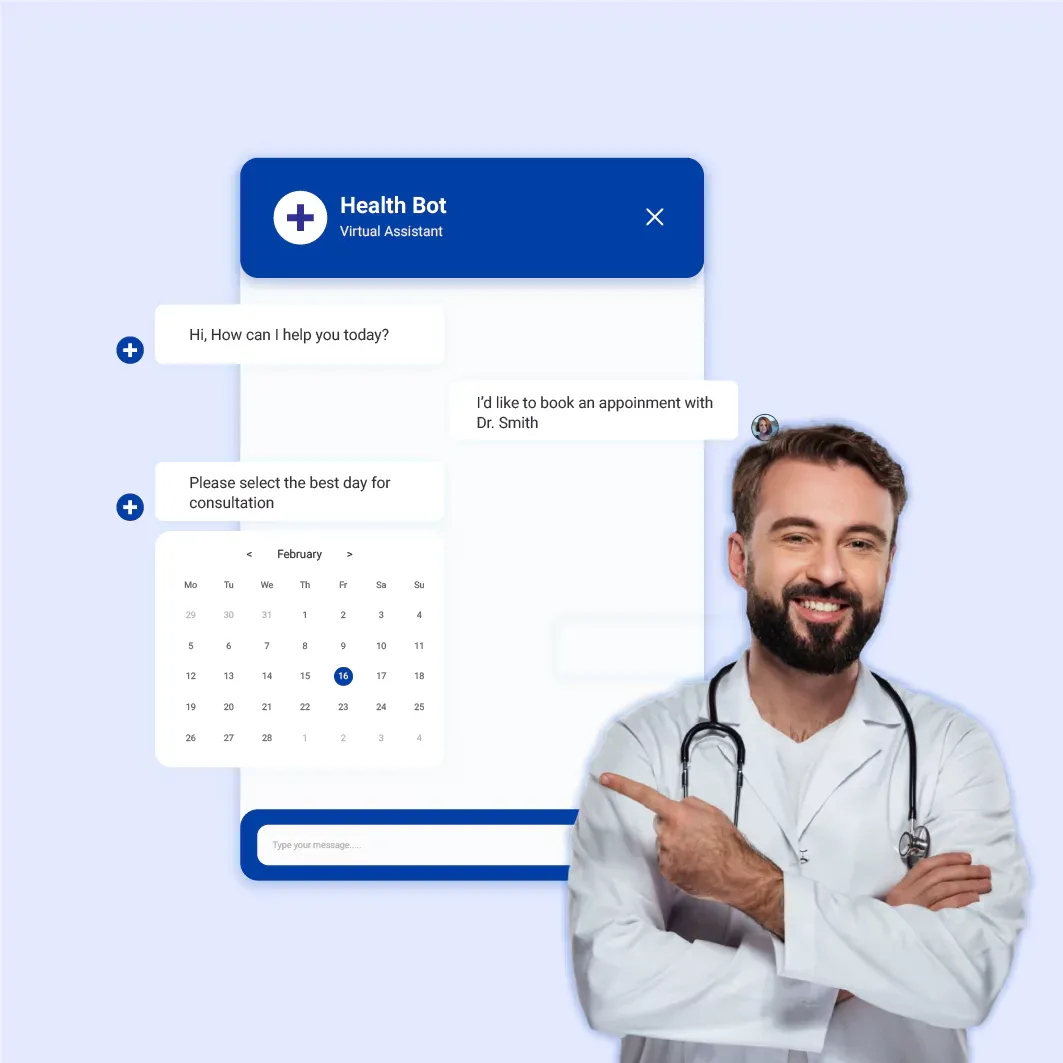What are Healthcare Chatbots?

Healthcare chatbots are AI-powered virtual assistants, ready to offer you information, support, and services related to all things healthcare. From symptom assessment to appointment scheduling, these chatbots have your back, making your life easier and your healthcare experience more enjoyable.
The primary purpose of healthcare chatbots is to streamline communication, enhance patient engagement, and improve overall healthcare experiences. So, let's dive in and explore the different types of healthcare chatbots that are making waves in the industry!
Types of Healthcare Chatbots
General Medical Information Chatbots: These know-it-all chatbots provide basic information about diseases, treatments, and healthcare services. They're like your own personal medical encyclopedia, just a text away!
Symptom Checkers: Feeling under the weather? Symptom checkers can help you identify potential health issues based on your reported symptoms. It's like having a virtual doctor on call 24/7!
Mental Health Chatbots: If you're struggling with stress, anxiety, depression, or other mental health concerns, these empathetic chatbots are here to lend an ear and offer support.
Medication Management Chatbots: Never miss a dose again! These chatbots assist with medication adherence, dosage adjustments, and refill reminders.
Administrative Chatbots: Bid farewell to long hold times and confusing forms! Administrative chatbots handle appointment scheduling, insurance queries, and other tasks so you can focus on what matters most – your health.
Why are Healthcare Chatbots Important?
1. Benefits for Patients
Healthcare chatbots are all about making your life easier, and they come with a whole host of benefits for patients like you:
24/7 access to healthcare information and support: No more waiting for answers! Get instant healthcare information and support whenever you need it.
Instant answers to common questions: Cut down on wait times and get the information you need quickly and efficiently.
Personalized and interactive health guidance: Chatbots tailor their responses to your unique needs, offering personalized guidance and support.
Enhanced privacy for sensitive health discussions: Discuss your health concerns privately and securely with a chatbot.
Improved adherence to treatment plans and medication schedules: Stay on track with your treatment plan and never miss a dose again, thanks to helpful reminders and guidance.
2. Benefits for Healthcare Providers
But it's not just patients who benefit from healthcare chatbots! Healthcare providers can also enjoy a range of advantages:
Streamlining administrative tasks and reducing workload: Let chatbots handle the paperwork so healthcare professionals can focus on what they do best – caring for patients.
Improving patient engagement and satisfaction: Engaged, satisfied patients are more likely to stick to their treatment plans and have better health outcomes.
Facilitating better triage and resource allocation: Chatbots can help identify patients in need of urgent care, ensuring they receive timely treatment and support.
Enabling remote monitoring and telemedicine capabilities: Chatbots can play a key role in the rapidly growing field of telemedicine, helping providers to monitor and support patients remotely.
Collecting valuable data for research and quality improvement initiatives: Gain insights into patient needs and preferences, and use this data to improve healthcare services and drive research efforts.
3. Improving Healthcare Accessibility
Healthcare chatbots also play a crucial role in improving healthcare accessibility by providing cost-effective, scalable, and easily accessible healthcare services. This helps bridge the gap between patients and healthcare providers, especially in underserved areas or for individuals with limited access to healthcare professionals.
How Healthcare Chatbots Work
Ever wondered how healthcare chatbots seem to magically understand your questions and respond with helpful information? Well, it's not magic—it's a combination of some seriously cool technology! Let's dive into the inner workings of healthcare chatbots and uncover the secret sauce behind their conversational prowess.
1. Natural Language Processing (NLP)
At the heart of every healthcare chatbot lies natural language processing (NLP), the indispensable technology that enables chatbots to understand and interpret human language. NLP works its linguistic magic by breaking down user inputs (your questions and statements) into smaller components, analyzing them for meaning, and generating appropriate responses.
In other words, NLP allows healthcare chatbots to engage in conversation with you, understand the context of your questions or concerns, and provide relevant and helpful information in return. It's like having your own friendly language expert, deciphering your words and guiding the chatbot's responses.
2. Machine Learning and Artificial Intelligence
But NLP is just the beginning! To become truly helpful, healthcare chatbots also rely on machine learning and artificial intelligence (AI) algorithms. These algorithms enable chatbots to learn from their interactions with users, identify patterns, and continuously improve their performance.
As a result, healthcare chatbots become more personalized and accurate in their responses, adapting to your specific needs and preferences. The more you interact with the chatbot, the smarter it gets, and the better it can serve you. Isn't that amazing?
3. Integration with Electronic Health Records (EHR) and other Healthcare Systems
For healthcare chatbots to provide you with the most accurate and tailored information, they often integrate with electronic health records (EHR) and other healthcare systems. By accessing this treasure trove of data, chatbots can offer you up-to-date, personalized healthcare information and support.
This integration also aids healthcare providers, allowing chatbots to streamline processes, reduce administrative workload, and improve the overall efficiency of healthcare services. It's a win-win for everyone involved!
Key Features of Healthcare Chatbots
Healthcare chatbots are like the Swiss Army knives of the digital health world, boasting a plethora of handy features designed to make your healthcare journey smoother and more enjoyable. Let's take a closer look at some of the key features that make healthcare chatbots the friendly, helpful companions they are!
1. Symptom Assessment and Triage
Feeling a tickle in your throat or an ache in your back? Healthcare chatbots are here to help with their symptom assessment and triage feature. These chatbots can ask you about your symptoms, analyze the information, and provide guidance on potential causes and next steps, such as self-care advice or seeking professional medical assistance.
Thanks to this feature, you can get an initial understanding of your health concerns and make informed decisions about your care. It's like having a knowledgeable friend by your side, offering helpful advice whenever you need it.
2. Appointment Scheduling and Reminders
Bid adieu to the days of endless phone calls and confusing appointment systems! Healthcare chatbots streamline the appointment scheduling process, allowing you to book, change, or cancel appointments with ease. Plus, they'll send you reminders to ensure you never miss an appointment again.
This feature not only saves you time and frustration but also helps healthcare providers reduce no-shows and improve the overall efficiency of their services. It's a win-win for everyone involved!
3. Medication Management
Managing medications can be a daunting task, especially if you're juggling multiple prescriptions. Enter healthcare chatbots and their medication management feature! These chatbots can help you stay on top of your medication schedule, providing reminders for when to take your meds, guidance on dosage adjustments, and alerts for potential side effects or interactions.
With the help of a healthcare chatbot, you can confidently manage your medication regimen and focus on what really matters—your health and well-being.
4. Mental Health Support
In today's fast-paced world, mental health support is more important than ever. Healthcare chatbots recognize this need and are equipped to offer support for users dealing with stress, anxiety, depression, or other emotional challenges. These empathetic chatbots can provide coping strategies, mindfulness exercises, and even crisis intervention in some cases.
With a mental health chatbot by your side, you're never alone in facing life's ups and downs.
Successful Implementations and Case Studies
1. Ada Health

Ada Health is a popular healthcare chatbot that helps users assess their symptoms, find potential causes, and receive guidance on the next steps. Ada Health has been successful in providing users with accurate and reliable health information, boasting over 10 million downloads and a 4.7-star rating on app stores.
2. Woebot
Woebot is a mental health chatbot designed to help users manage their emotional well-being. Using cognitive-behavioral therapy techniques, Woebot offers personalized support for stress, anxiety, and depression. A study published in the Journal of Medical Internet Research found that Woebot significantly reduced symptoms of depression in users, demonstrating the effectiveness of chatbot-based mental health support.
3. Florence
Florence is a medication management chatbot that helps users keep track of their prescriptions and reminds them when it's time to take their meds. With its user-friendly interface and helpful features, Florence has garnered praise from both users and healthcare professionals alike.
4. Sensely
Sensely's virtual health assistant, Molly, is an excellent example of a healthcare chatbot that has successfully integrated with telemedicine platforms. Molly enables users to connect with healthcare providers via video consultations, access their electronic health records, and receive personalized care plans. This integration has allowed Sensely to provide comprehensive healthcare support to users in a seamless and efficient manner.
Frequently Asked Questions (FAQs)
How do healthcare chatbots maintain patient privacy?
Healthcare chatbots ensure patient privacy by adhering to data protection regulations (e.g., HIPAA, GDPR) and implementing encryption and secure data storage practices.
Can healthcare chatbots diagnose medical conditions?
While chatbots can provide general health information, they are not a substitute for professional medical advice. Consult a healthcare professional for accurate diagnoses.
How can healthcare chatbots improve patient engagement?
Healthcare chatbots can improve patient engagement by offering personalized health tips, appointment reminders, and medication tracking, fostering better communication and adherence to treatment plans.
Are healthcare chatbots multilingual?
Many healthcare chatbots support multiple languages, enabling them to cater to diverse patient populations and provide a more inclusive user experience.
Can healthcare chatbots integrate with Electronic Health Records (EHRs)?
Some healthcare chatbots can integrate with EHR systems, allowing them to access and update patient information, streamline workflows, and facilitate better care coordination.

